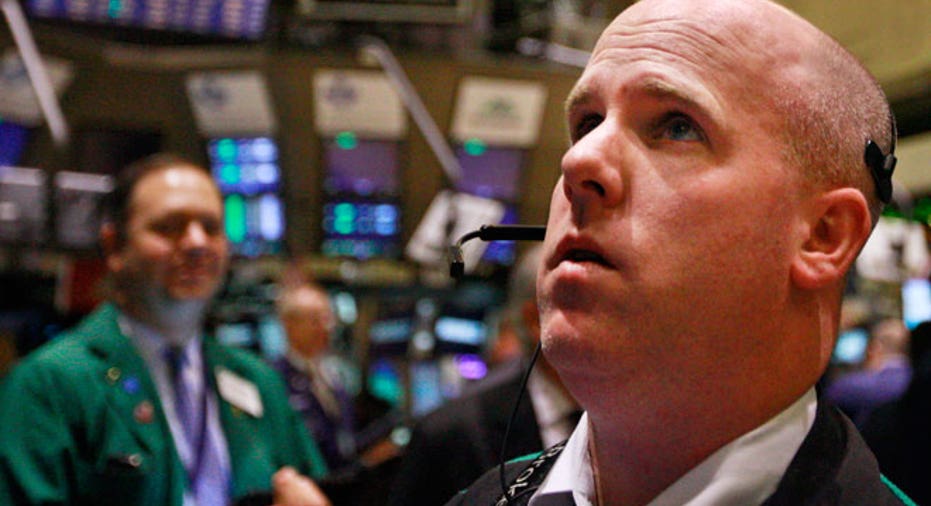When Is Good News Bad? Ask the Fed

As if reading up on Greece’s electoral bylaws wasn’t complex enough, investors in today’s confusing world are also coming to grips with a new reality where good news may be bad for equities, and vice versa.
Like in the past, this paradoxical thinking takes hold as investors hope and pray the world’s central banks come to the rescue with extraordinary moves designed to mask economic stumbles and juice risky assets.
“Like extreme sports, investing has become a death-defying undertaking. Don’t you miss the good old days when investing was about investing?” Ed Yardeni, president at Yardeni Research, wrote in a note.
The "good news is bad news" theme was very much in play last week, which featured a slew of seemingly negative economic reports.
Up is Down, Down is Up
For example, U.S. consumer sentiment unexpectedly tumbled in May to a six-month low, weekly jobless claims ticked higher, retail sales slipped 0.2% in May and Europe’s sovereign debt crisis continued to intensify.
Against that backdrop, the blue chips rallied 213 points, or 1.7%, last week, marking their second consecutive week of gains.
“When I think of the equity markets’ recent advances despite rising global risks, I can’t help but picture an individual in a catastrophic earthquake that has become optimistic that the cracks in the crust will go around them rather than underneath them,” Sam Stovall, chief investment strategist at S&P Capital IQ, said in a note.
At the same time, U.S. markets struggled on Monday to rally around Greece’s election results, which Fitch said lowers the likelihood of a messy Greek exit from the eurozone -- a potentially disastrous outcome investors had been dreading.
“If you see a disappointing economic report, the market goes up and vice versa. It’s kind of a bizarro world,” said Luke Aucoin, chief operating officer and portfolio manager at Vista Research and Management.
All Eyes on Fed
For the most part, this peculiar market action can be chalked up to Wall Street’s intense focus on new stimulus measures from the Fed, which is set to wrap up a pivotal two-day meeting on Wednesday.
Market participants have been buying stocks when new economic gauges or developments seem to increase the odds for Fed intervention because previous stimulus programs helped boost risk assets like equities. They have also been taking risk off the table by selling equities when news suggests the Fed will stay on the sidelines.
All of this raises the bar for Wednesday, when the Fed’s policy arm announces its next move.
There’s a wide disparity in opinion on whether the central bank will stand pat, offer an intermediary move like an extension of the expiring Operation Twist program or unveil a third round of quantitative easing for as much as $600 billion.
“The estimates are all over the board,” said Aucoin, who predicted a 2% to 3% multiday slide for stocks if the Fed indicates no additional easing.
“Investors keep grasping at straws as to what the Fed might do,” said Bruce McCain, chief investment strategist at KeyCorp.’s (NYSE:KEY) Key Private Bank. “Things just aren’t bad enough yet to bring the Fed off the sidelines, in our view."
‘Diminishing Returns’
Some of the attention on the Fed may be misplaced because each successive stimulus program has had less of a positive impact on stock prices than the prior one.
According to Yardeni, the S&P 500 surged 36.4% during QE1, the first iteration of the bond-buying program. However, the broad index rallied by a more modest 24.1% after QE2 was signaled in August 2010 and then just 15.1% during Operation Twist.
“Most people have accepted there is diminishing returns for each additional round of quantitative easing, but nonetheless one more round is going to be good” for stock prices, said Aucoin.
It’s not clear how long the current "good news is bad" period will last, but the Fed could put a stop to it this week with a definitive signal one way or the other on further easing.
“For now, we have to keep drinking what the central banks are serving,” said Yardeni.
Aucoin said he is looking forward to when investors can focus on the fundamentals of investing instead of reading the tea leaves at the Fed.
“As investors, we should be excited and bullish about good economic reports,” said Aucoin. “That should cause the market to go up and make us feel better about the future of earnings. That’s the way it’s supposed to work. Unfortunately we lost our way.”



















